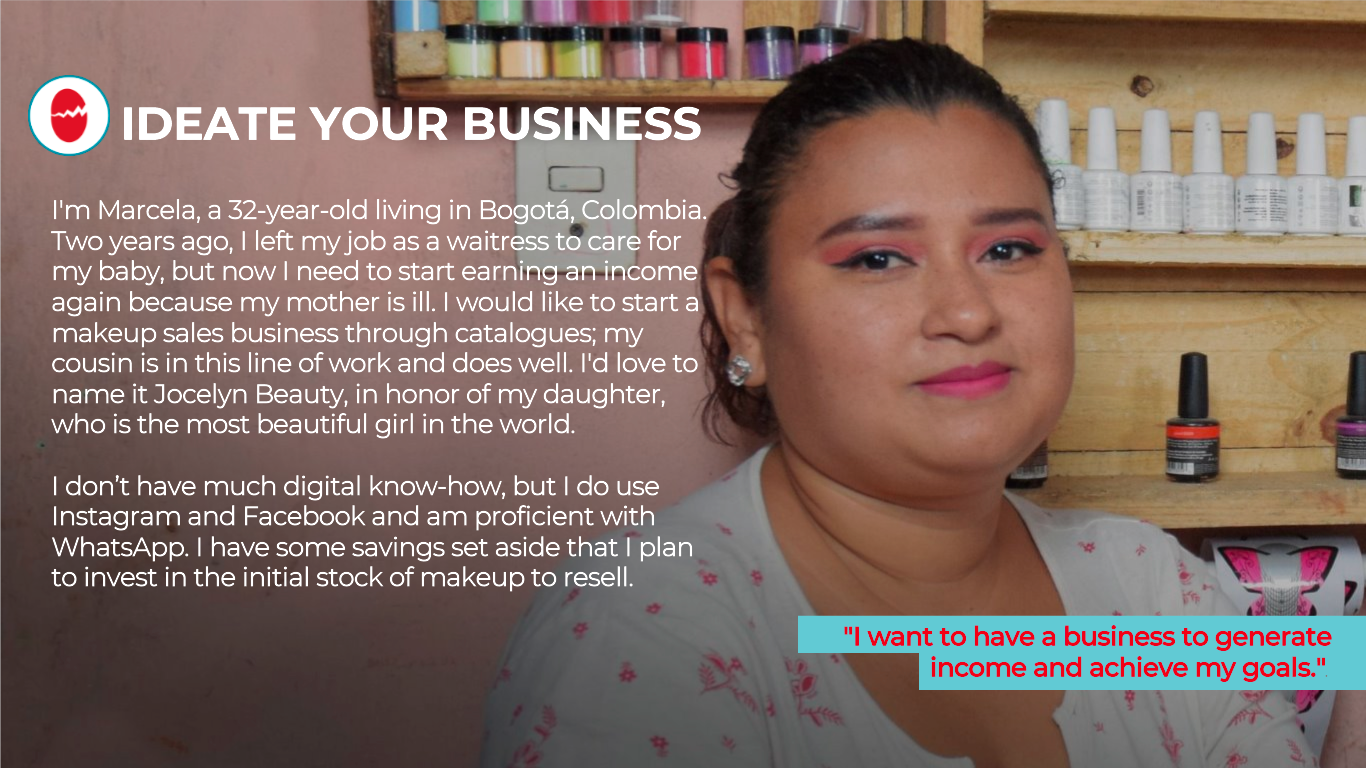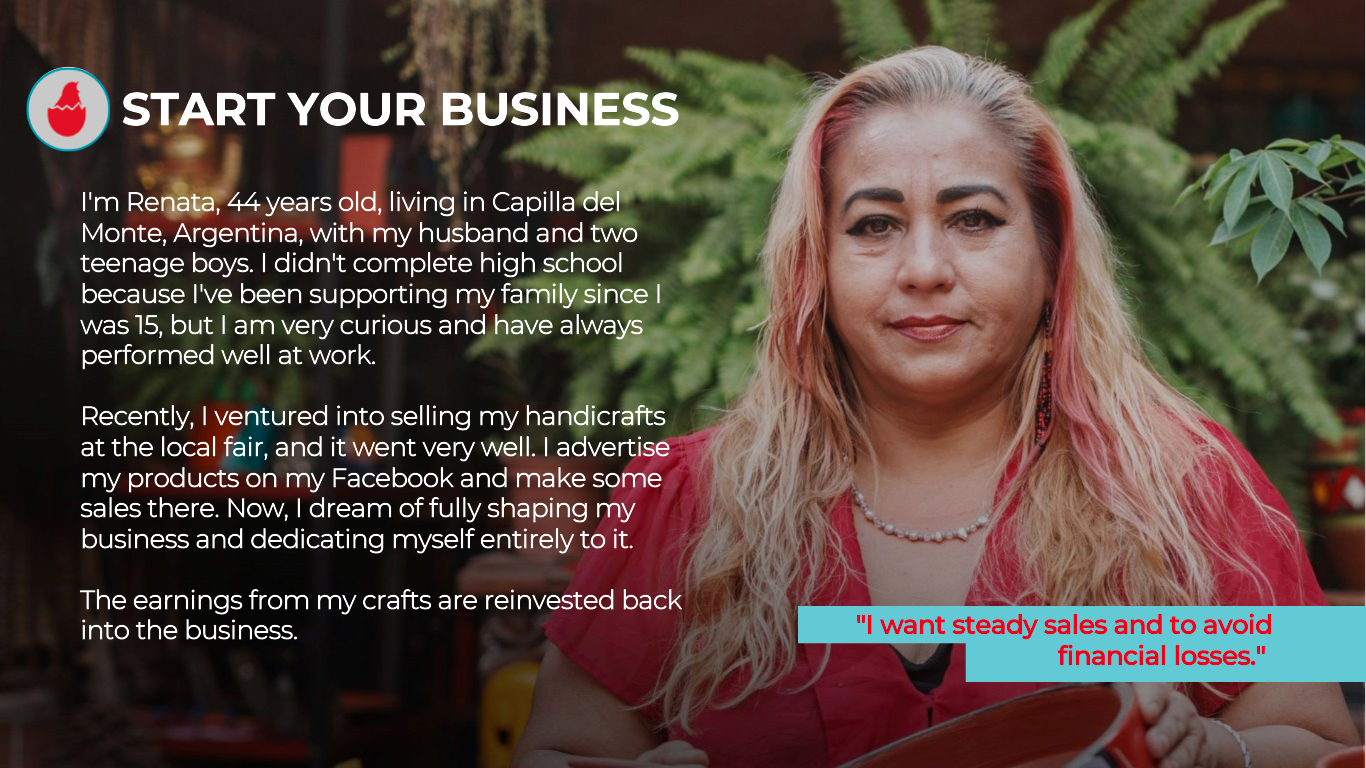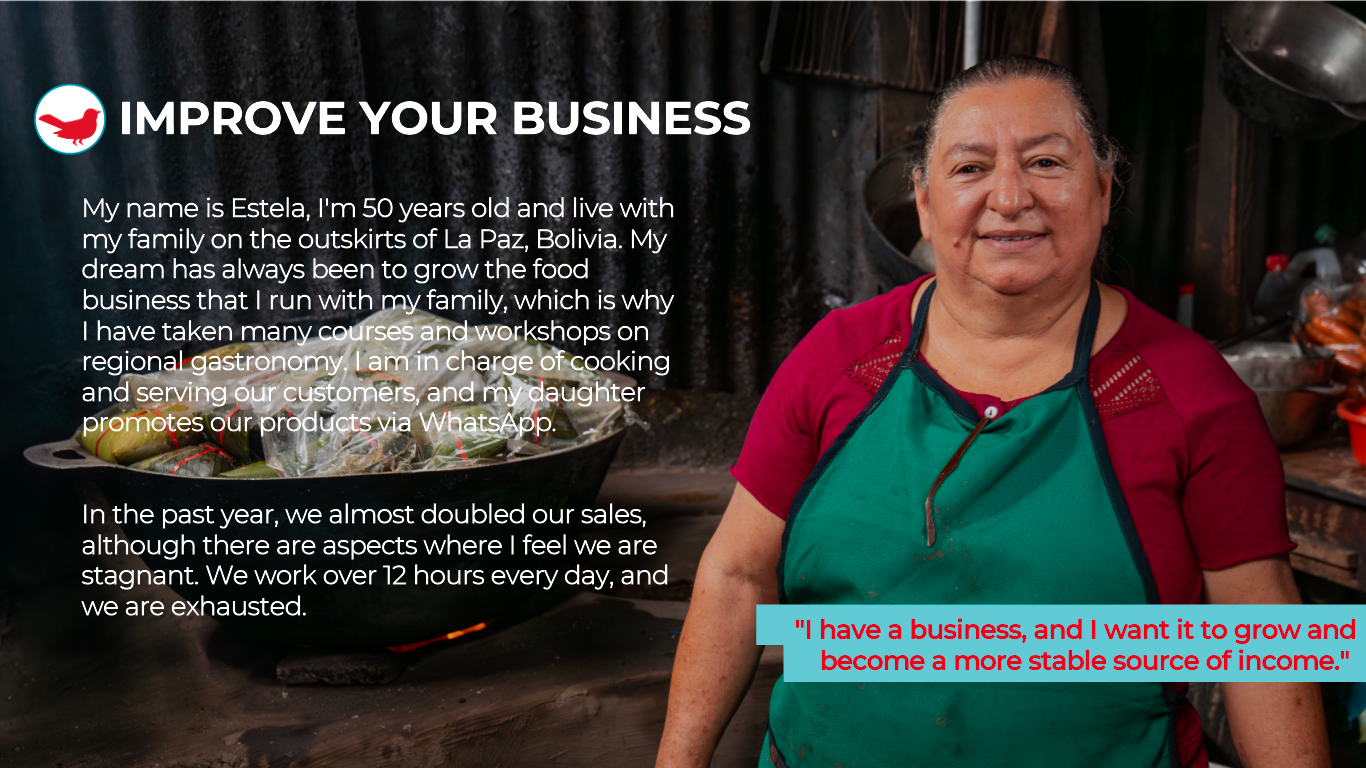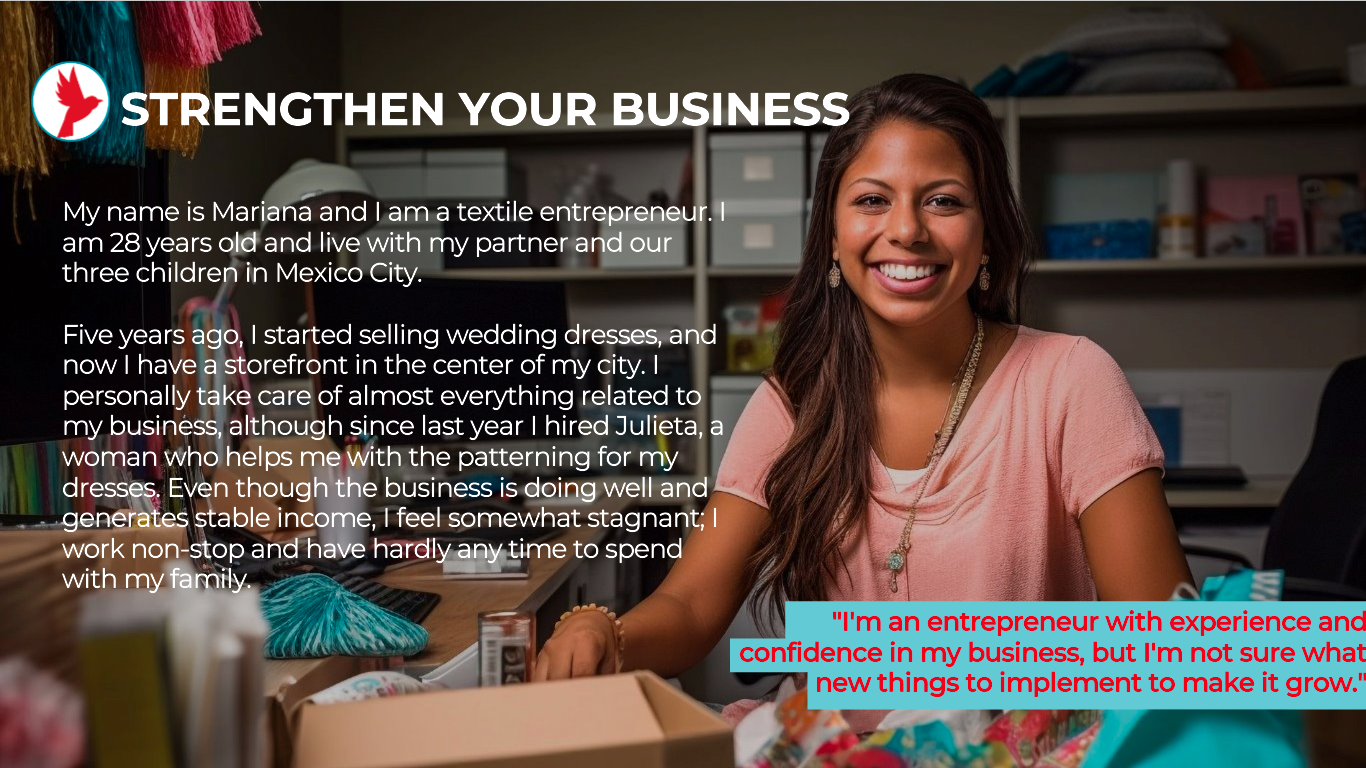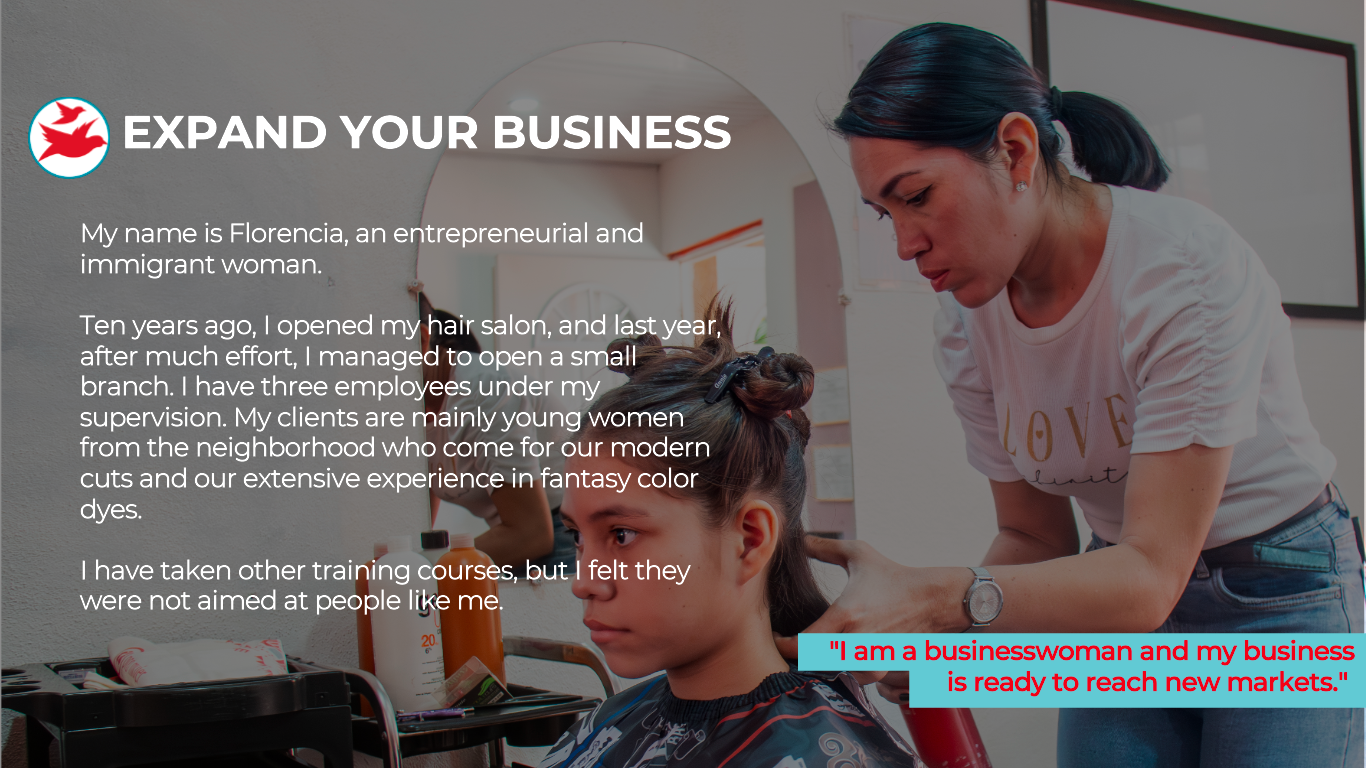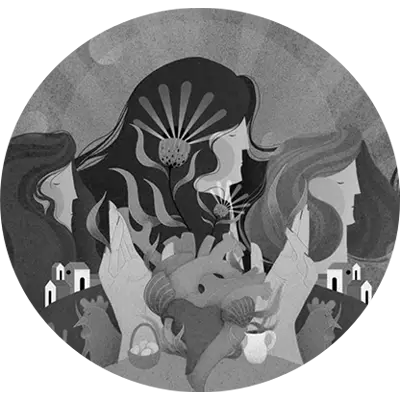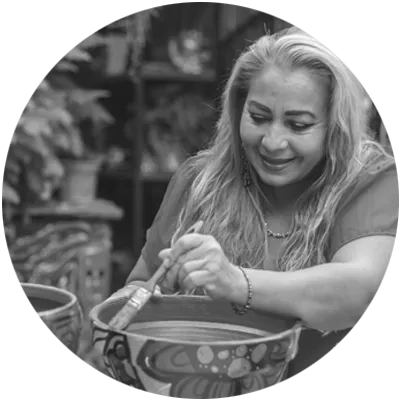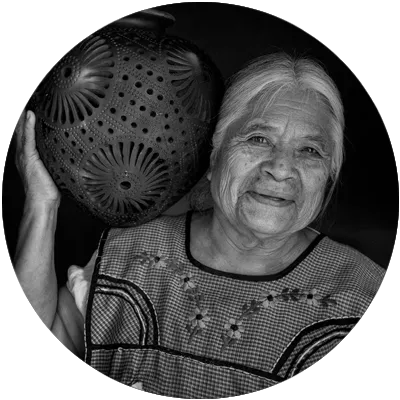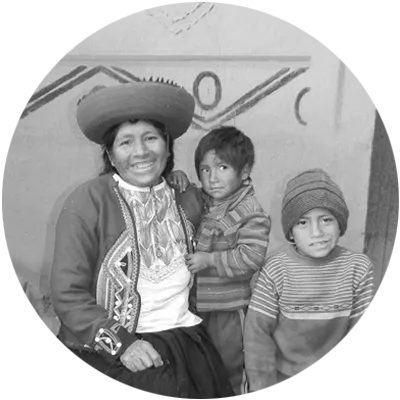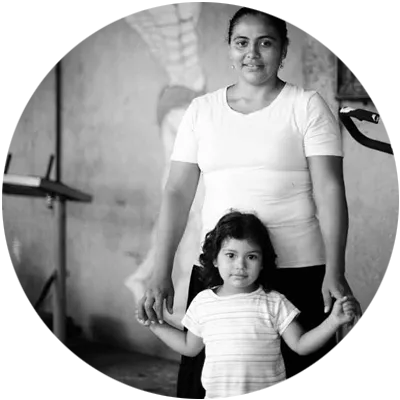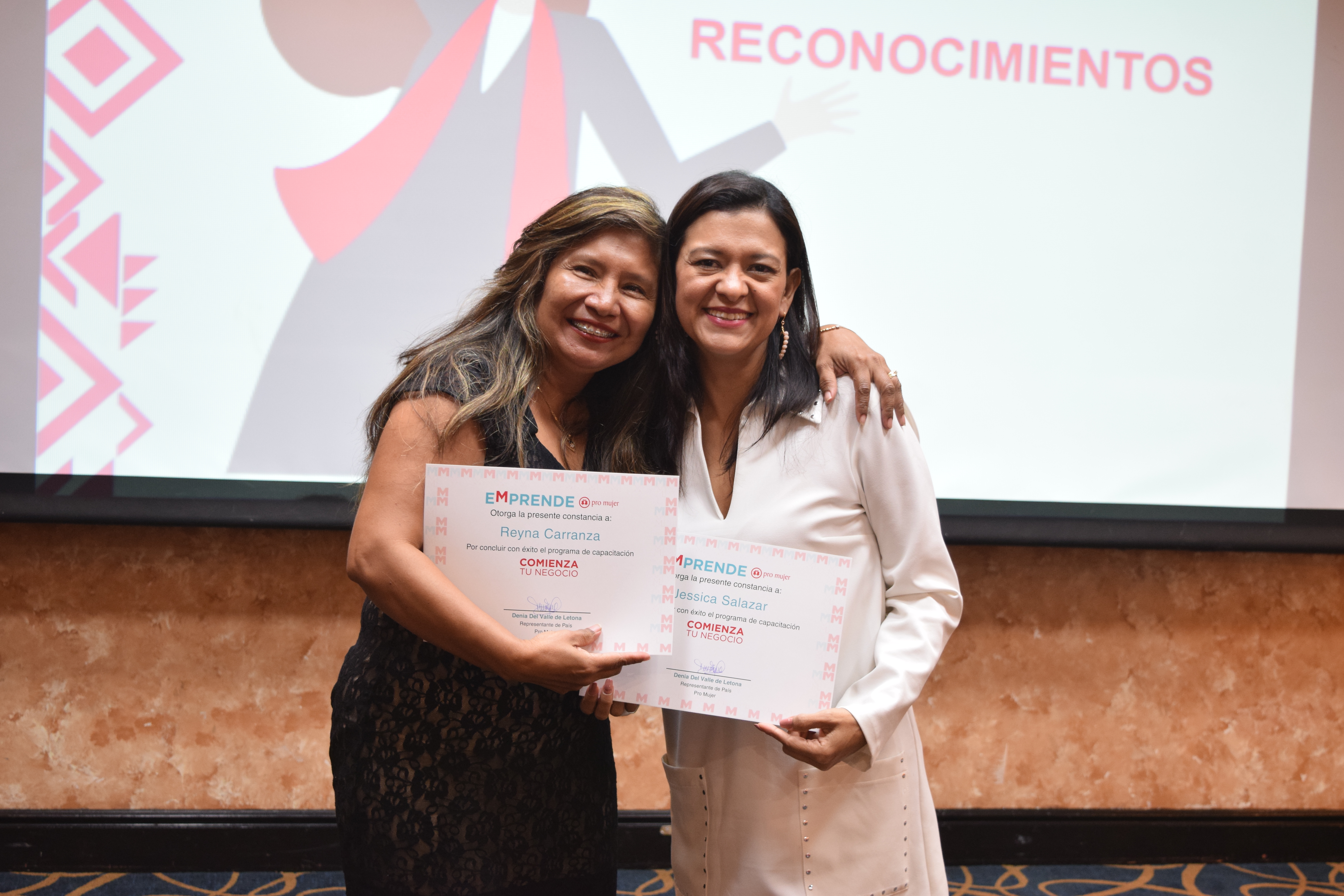Since its inception in 2021, Emprende Pro Mujer, the educational digital platform dedicated to women who seek economic prosperity through their ventures, has allowed Pro Mujer to stay close to women entrepreneurs in Latin America, with an intersectional perspective that takes into account tells their individual and contextual realities.
This has meant recognizing that, although there are women who go into business when they see an opportunity, there are many more (82% in Latin America, according to the GEM) who do it out of necessity or to survive. So, the program had to focus on supporting women on their way to achieving personal development, getting them closer to making their own decisions, and providing them with the tools to face personal and business challenges.
Who are the women who start businesses out of necessity?
Unfavorable personal factors and an unfavorable context motivate these women to go into business to generate income quickly, or, sometimes, as a means to survive. They are generally self-employed and create businesses in traditional sectors such as handicrafts, clothing, baking, food service, or, to a lesser extent, consulting in social networks and advertising. These businesses can be set up and maintained informally and often mobilize family and local economies.
Who are the women who go into business when they see an opportunity?
In this category, we find women who identify and take advantage of market opportunities after a process of analysis and research. There are also those who will find an unmet need and develop a solution or have an idea that they want to put out there. They have a vocational calling and choose going into business over other job options. Their ventures tend to be dynamic or high-impact.
And These Are the Profiles of the Women We Found on the Emprende Pro Mujer Pathways
From new knowledge that is transmitted and exercised with accessible, effective, updated, and entertaining content to the creation of a community of female entrepreneurs, there are many tools that have allowed us to show Latin American women the transformative capacity they have as entrepreneurs.
And, in the same way, these experiences have allowed us to identify the specific experiences of entrepreneurs in each of the stages of their entrepreneurial journey and in their growth as women, as entrepreneurs, and as agents of change in their communities. Get to know their profiles:
Ideate Your Business – Create
These are women who start businesses out of necessity, to generate extra income immediately, and who dedicate much of their time to caring for their children or family members. The term “entrepreneur” seems distant to them, and they have limited resources for starting their businesses, including very basic knowledge in ICT. They look for quick answers and advice to choose a business and set up a profitable venture.
Their business may be emerging or have been around for up to three months and they may arise from local or family economies, or from the desire to market trendy or easy wares.
Start Your Business – Pre-Incubation
These women are just starting their businesses, which means they need a step-by-step approach to technological tools, precise instructions, and constant validation. In this profile, as well as in the previous one, we can see first-time entrepreneurs, merchants, resellers of products from catalogues, and artisans who are doing what they like or want to reshape what they do.
Their ventures have been around for anywhere between three months and two years and can be informal micro-businesses that market products or services without a business strategy, seasonally, or mainly within a small social circle.
Improve Your Business – Incubation
Same as the previous group, these women start businesses out of necessity, they do not define themselves as entrepreneurs, they dedicate a large part of their time to unpaid care work, and they have basic knowledge of ICT. It is common to find that women in this group minimize their business achievements. They also seek assurances and order. They find it difficult to say “no” and that leads them to stray from their goals or overload themselves with work.
Their businesses are in the development stage, and they have been marketing the same products and services for at least a year. They function as informal micro-businesses that, although they have little strategy and planning, are already selling beyond a small social circle and are a more frequent source of income, albeit not entirely stable
Strengthen Your Business – Acceleration
In this profile we find entrepreneurs by necessity who already have experience leading their business or even entrepreneurs by opportunity. The women in this group already define themselves as entrepreneurs, so they have had some training, they have basic to intermediate knowledge in ICT, and their role as caregivers has been modified by the time they dedicate to the business, which can make them lose sight for a minute of their own well-being and their own goals.
They may experience a feeling of stagnation, so they look for new ideas, although they show some resistance to change. Their ventures have generally been around for over three years and have constant sales and basic strategic planning. They tend to be informal micro-businesses that have identified their market segment. They seek to improve their online sales beyond social networks and reinforce their value proposition and growth strategy.
Expand Your Business
In this profile, we find female entrepreneurs and businesswomen with experience leading their business, with intermediate to advanced knowledge in ICT, who are looking for support and advice for facing new challenges in their businesses. As they have more experience, it is possible to find some anger or frustration for some situations that have not worked out. They more consciously seek a work-life balance.
Their businesses have generally been around for over three years. They are growing, with constant and stable sales. If they are not formal businesses, they are in the process of formalizing and have work teams, strategies, and a business model in place, as well as new challenges to face with innovation. They are usually ready to enter new markets and design new products or service
